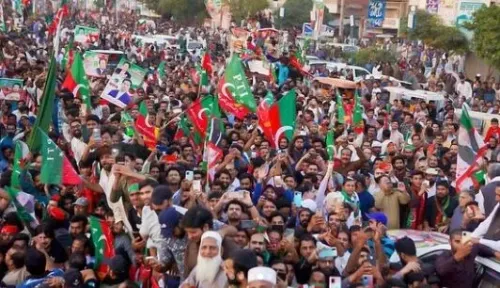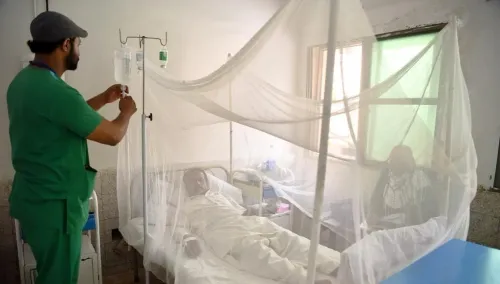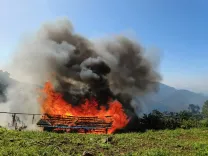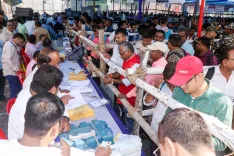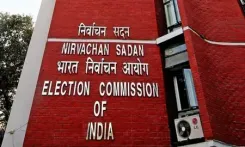Is Jamaat Strengthening Its Influence Ahead of Bangladesh Elections?
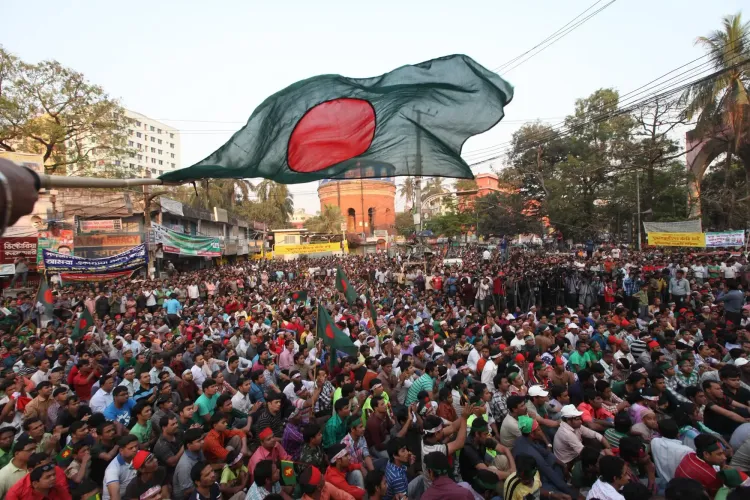
Synopsis
Key Takeaways
- Upcoming elections in Bangladesh are set for February 2026.
- Jamaat-e-Islami is pushing for a Sharia-based governance model.
- Concerns over minority rights are growing as the Jamaat gains influence.
- The political landscape is shifting with the Awami League banned from contesting.
- India is closely monitoring the situation to protect its interests.
Dhaka, Sep 10 (NationPress) The elections in Bangladesh are set for February 2026. Although concerns loom regarding the integrity of the elections, especially with the Awami League barred from participating, this electoral exercise is crucial for the nation.
As the elections approach, the Jamaat-e-Islami is intensifying efforts to impose stringent regulations, advocating for a governance model that aligns with Sharia principles. Calls to establish Sharia law and declare Bangladesh an Islamic State are being voiced. Such demands, although primarily from extremist factions, reflect a concerning trend influenced by the Jamaat.
The Jamaat is currently exerting significant influence over the interim government, indicating that these directives are being formally recognized. Recently, the Jamaat has urged educational institutions to abandon plans for hiring dance instructors for primary schools and instead appoint religious educators to nurture a sense of morality and responsibility among children.
Mia Golam Parwar, the Jamaat's general secretary, stated, “Hiring music and dance instructors instead of religious educators is entirely unacceptable. Music or dance should not be compulsory subjects. Families with an interest can seek private lessons. However, religious education is vital for all communities.”
The Jamaat and similar radical groups have frequently pointed to a perceived erosion of societal morals. They argue that religious education is fundamental in cultivating moral values and establishing a disciplined society. Golam Parwar expressed concern over the appointment of dance and music teachers amidst a moral crisis facing the youth, drawing parallels with Taliban-controlled Afghanistan.
Moral policing regarding women's rights has been prevalent in Bangladesh. It remains to be seen how the situation will evolve if a BNP government led by Khaleda Zia gains power.
Under Sheikh Hasina's administration, these topics were largely suppressed. However, following his removal, radical factions are becoming increasingly vocal, demanding the enforcement of Sharia law.
Observers of Bangladesh note that the current trajectory suggests a concerted effort to transition the country into an Islamic State. The release of various criminals and the Jamaat's ban being lifted post-Hasina's ousting only reinforces this unsettling shift.
These extremist groups have targeted minority communities, particularly Hindus, after the student-led uprising in August 2024, which involved many individuals affiliated with the Jamaat's Islamic Chhatra Shibir. In the initial week following Sheikh Hasina's ouster, there were 200 attacks on minority communities, a number that surged in subsequent weeks.
The caretaker head of government, Muhammad Yunus, has assured that elections will proceed in February 2026. India is closely monitoring the situation and prefers the establishment of a democratically elected government. Relations under Yunus have deteriorated, and India is eager to improve ties with its neighbor.
The upcoming elections promise to be intriguing. With the Awami League excluded from the electoral race, the BNP appears to hold a potential advantage. While analysts predict the BNP's return to power, the possibility of a decisive victory remains uncertain.
If the BNP requires coalition partners, it may have no alternative but to align with the Jamaat, as has occurred previously. This could complicate relations with India, as the Jamaat holds significant influence.
The Jamaat has historically received backing from the ISI and has collaborated on a shared agenda since the 1970s, aiming to establish an Islamic State and create instability in India.

